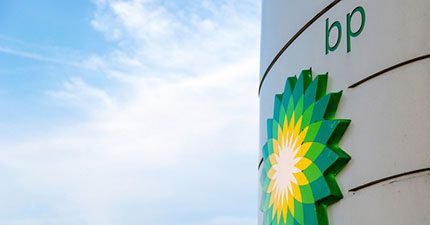The loss was largely due to BP writing down the value of its assets after it cut its oil price forecast. A spokesperson from BP said the outlook for prices and demand was “challenging and uncertain”, and one that could weigh on the global economy for a “sustained period”.
The oil giant has said its dividend would halve to 5.25 cents a share, compared to 10.5 cents in the first quarter of the year. This follows a similar earlier move by Royal Dutch Shell, which cut its first quarter dividend, for the first time since World War II, in April.
Despite BP’s loss and a lower dividend, the company’s share price rose by 6.26% to 298.6p as it announced a new strategy.
BP said it wanted to “pivot” from being a traditional oil company to an “integrated energy company” and said it expects to achieve “net zero” carbon emissions by 2050 following a new company strategy.
Bernard Looney, who took over as BP chief executive in February, said; “This coming decade is critical for the world in the fight against climate change, and to drive the necessary change in global energy systems will require action from everyone.”
Looney also commented; “By following this strategy, we expect bp to be a very different energy company by 2030.”
It plans to invest in renewables, bioenergy and as well as hydrogen, carbon capture and storage technology, pledging to increase low-carbon spending to $5b a year by 2030, and boost renewable power generation to 50 gigawatts while shrinking oil and gas output by 40% compared with 2019.
